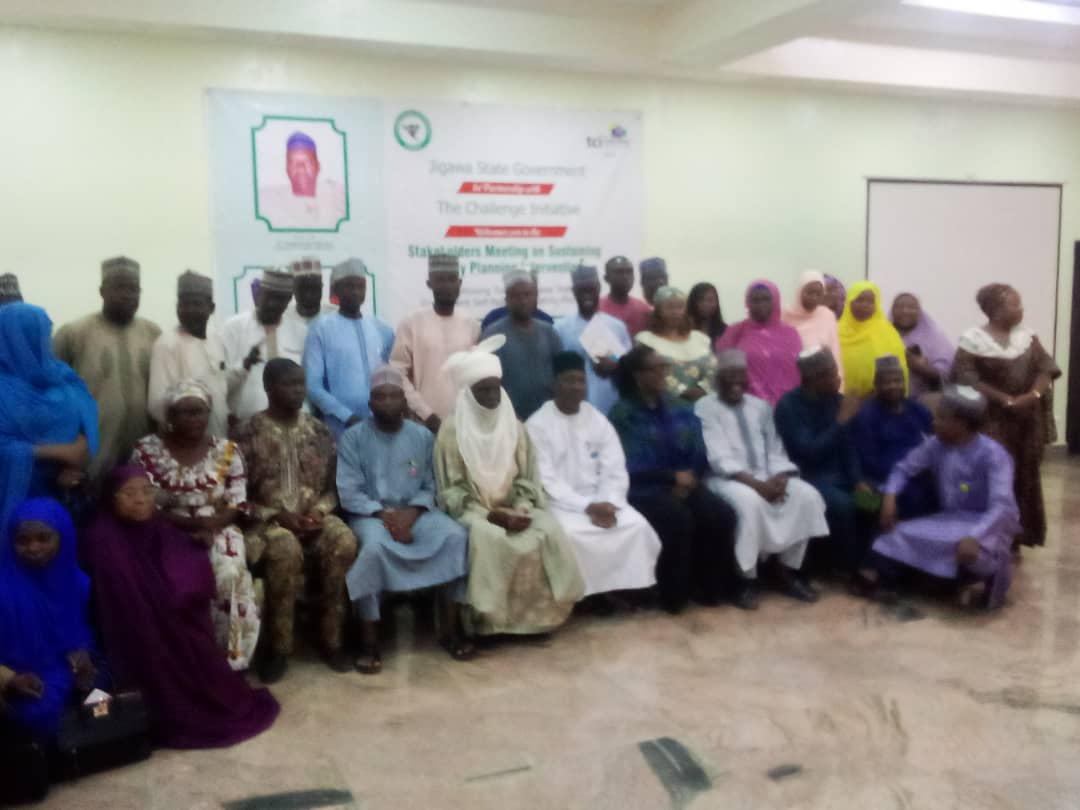From Mika’il Tsoho, Dutse
The Jigawa State Government has called on the Federal Government to grant states the autonomy to procure family planning commodities directly, stressing that doing so will significantly help in reducing maternal mortality across Nigeria.
The state also appealed to the Federal Ministry of Health and the World Health Organization (WHO) to dismantle the monopoly surrounding the supply of family planning commodities in the country.
The Executive Secretary of the Jigawa State Primary Healthcare Development Agency (SPHCDA), Dr. Sambo Shehu, made the call during a high-level transition alignment meeting held at Haitel Hotel in Dutse. The meeting focused on institutionalizing The Challenge Initiative (TCI)-supported family planning interventions in the state.
Dr. Sambo lamented that the current centralized and monopolized process for the supply of commodities is slowing down progress in many states.
“I have a message for the lead team,” he said. “At the 2024 National Family Planning Conference, I raised a critical concern. As a surgeon, I can walk into the market and buy anesthetics and other medical products, but I can’t do the same with family planning commodities. Why the monopoly? Why is there only one supplier for the entire country? Why aren’t we allowed to manufacture locally?”
He added that when national officials visit states, they often emphasize demand and capacity but leave without providing adequate supply, leaving state health officials to grapple with high demand and rising maternal deaths.
Dr. Sambo also criticized the federal budgetary allocation of $45 million for family planning commodities, describing it as grossly inadequate for a country of Nigeria’s size. “What is $45 million for a country like Nigeria? We need a realistic investment to meet the growing needs of Nigerian women.”
He encouraged state governments to make independent budgetary provisions to procure family planning commodities, noting that Jigawa State has already taken proactive steps. “Here in Jigawa, we have a working plan. A memo has been drafted, and we are optimistic that His Excellency the Governor will approve it once presented,” he stated.
Dr. Sambo further described the Vision Health Fit 2030 target of 27% contraceptive prevalence as insufficient, considering Nigeria’s maternal mortality burden.
In her remarks, Dr. Taiwo Johnson, Country Director of The Challenge Initiative (TCI), said the meeting—organized by the Jigawa State Government in partnership with TCI—was aimed at promoting the institutionalization and sustainability of TCI-supported interventions across the state.
“The goal is to ensure a structured and seamless transition of programme ownership to the state government for long-term impact beyond TCI’s timeline, which runs from October 2023 to May 2025,” she explained.
The meeting featured comprehensive presentations on key themes such as family planning indices, TCI coverage, advocacy, demand generation, service delivery, postpartum family planning (PPFP), capacity building, and monitoring and evaluation.
Dr. Johnson noted that the TCI intervention was implemented in 13 out of Jigawa’s 27 local government areas, with remarkable outcomes. These include 9,861 postpartum family planning clients, 421 social mobilization neighborhood campaigns, 889 voluntary mobilization activities, 82 in-reaches, 36 service delivery outreaches, 120 association meetings, 234 life event engagements, and 27 structured community dialogues.
The benefiting LGAs include Malammadori, Dutse, Birnin Kudu, Babura, Ringim, Buji, Kafin Hausa, Jahun, Gagarawa, Yankwashi, Gwaram, Maigatari, and Kiyawa.


